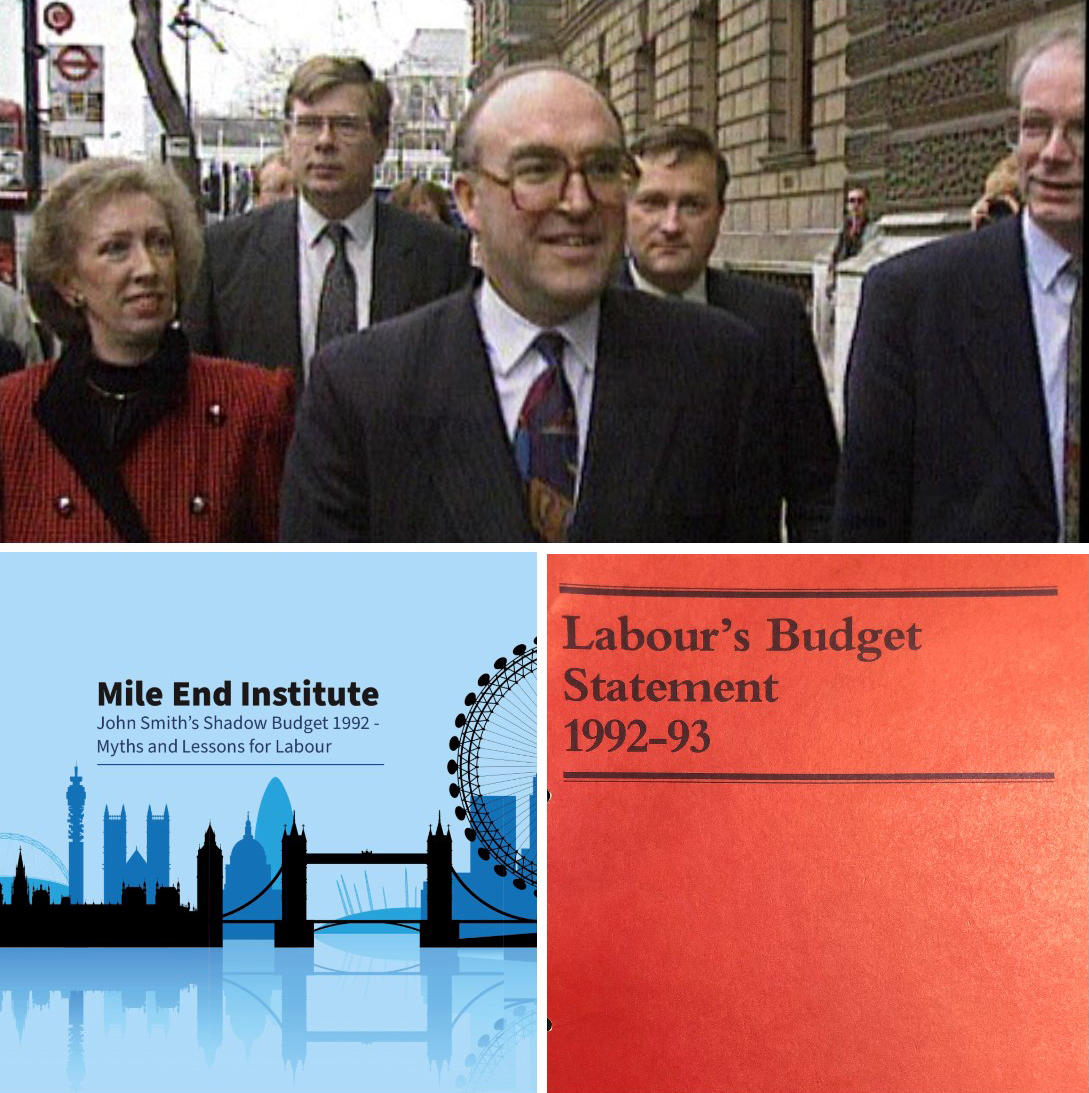Thirty years ago John Smith launched his Shadow Budget ahead of 1992 General Election. Since then a myth has taken hold that his bold commitment to raise taxes on the better off was the main reason for Labour’s loss. In a new paper for the Mile End Institute (Queen Mary London University) I dispute this narrative. The Shadow Budget did not cost Labour the 1992 election but it does offer important lessons that are still relevant to Labour’s leadership today.
Some have argued that the Shadow Budget showed that higher taxes on the rich are unpopular and this certainly became a self-defining mantra for New Labour. However this simplistic view overlooks important political context, such as the gross injustice of the Thatcherite top rate tax & benefit cuts in 1988 & the impact of the Tory ‘tax bombshell’ campaign that was based on an exaggerated £35bn costing of Labour’s 1988-1989 Policy Review.
My paper describes the origins of the Shadow Budget in Labour’s Policy Review. Unfortunately this much needed refreshing of the party’s policies was vulnerable to Tory misrepresentation as it contain too many quasi commitments. The structure of the Policy Review also resulted in a muddled macroeconomic policy that failed to define a clear set of fiscal policy rules. The Shadow Budget was an attempt to discredit the Tory’s dishonest claim that everyone would pay £1,250 by setting out transparently Labour’s core tax and spending commitments. In fact under Smith’s package eight out of ten taxpayers would have been better off. In the end the Shadow Budget failed, not because of its actual commitments, but because it proved impossible to defuse the Tory’s ‘Tax Bombshell’ lies that had been seeded more than a year before 1992 election.
The Labour leadership’s reluctance to consider extra borrowing also constrained policy options. This ultimately prevented Smith’s preferred option to cut the rate of National Insurance to offset removal of the upper earnings limit; and also limited Labour’s ability to adopt an explicitly Keynesian pro-recovery macroeconomic stance. In my view the decision not to modestly increase borrowing was the critical policy mistake rather than the commitment to raise the top rate of tax.
My paper concludes with lessons that hopefully are relevant today to Keir Starmer and Rachel Reeves (respectively Labour’s Leader & Shadow Chancellor).
For sure the Tories will again repeat their ‘tax bombshell’ lies in 2023 & 2024. So Labour must try avoid writing too detailed a policy programme. And they must adopt flexible but credible fiscal rules that can both respond to current economic conditions and refute false Tory allegations of Labour profligacy.
Finally, Starmer should expect that the Conservatives will dump Boris Johnson if he becomes clearly unelectable. That is what they did when Mrs Thatcher was replaced by John Major in 1990; and that above all else was why the Tories unexpectedly won office again in 1992.

